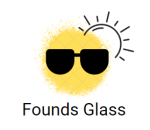Blue light glasses have surged in popularity in recent years, touted as a solution to alleviate eye strain and protect against the potential harm caused by prolonged screen time. However, amid the hype, it’s essential to separate fact from fiction to understand whether these glasses live up to their promises.
The Reality of Blue Light Exposure
Blue light is a type of high-energy visible (HEV) light emitted by digital screens, LEDs, and sunlight. While exposure to natural blue light during the day helps regulate our circadian rhythm and boost alertness, excessive exposure to artificial blue light, especially in the evening, can disrupt sleep patterns and cause eye discomfort.
The Functionality of Blue Light Glasses
Blue light glasses are equipped with special lenses designed to filter out or block a portion of blue light wavelengths. The lenses may contain a coating that absorbs blue light or have a yellowish tint that helps reduce glare and enhance contrast, particularly in low-light conditions.
Addressing Eye Strain
One of the primary claims associated with blue light glasses is their ability to reduce eye strain and fatigue caused by prolonged screen use. While some users report subjective improvements in comfort after wearing these glasses, scientific evidence supporting their efficacy remains mixed.
Scientific Studies
Studies examining the effects of blue light glasses on eye strain and sleep quality have yielded conflicting results. While some research suggests that wearing blue light glasses may lead to modest improvements in symptoms such as dry eyes and sleep disturbances, other studies have found no significant difference compared to wearing regular glasses or no glasses at all.
Individual Variability
It’s important to recognize that the effectiveness of blue light glasses can vary from person to person. Factors such as age, screen usage habits, preexisting eye conditions, and sensitivity to light may influence the perceived benefits of wearing these glasses.
Managing Expectations
While blue light glasses may offer some degree of relief for individuals experiencing eye strain or sleep disruptions related to screen use, they are not a panacea. Managing expectations and incorporating other strategies such as taking regular breaks, adjusting screen settings, and maintaining good ergonomics are equally important for promoting eye health and well-being.
Conclusion
Blue light glasses have garnered attention as a potential remedy for the adverse effects of digital screen exposure. While anecdotal reports and some research suggest that these glasses may provide relief for certain individuals, the scientific evidence supporting their efficacy remains inconclusive.
Ultimately, whether blue light glasses are beneficial for you depends on various factors, including your individual needs, preferences, and lifestyle. Consulting with an eye care professional can help you determine whether blue light glasses are a suitable option and develop a comprehensive approach to protecting your eye health in the digital age.


